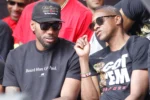
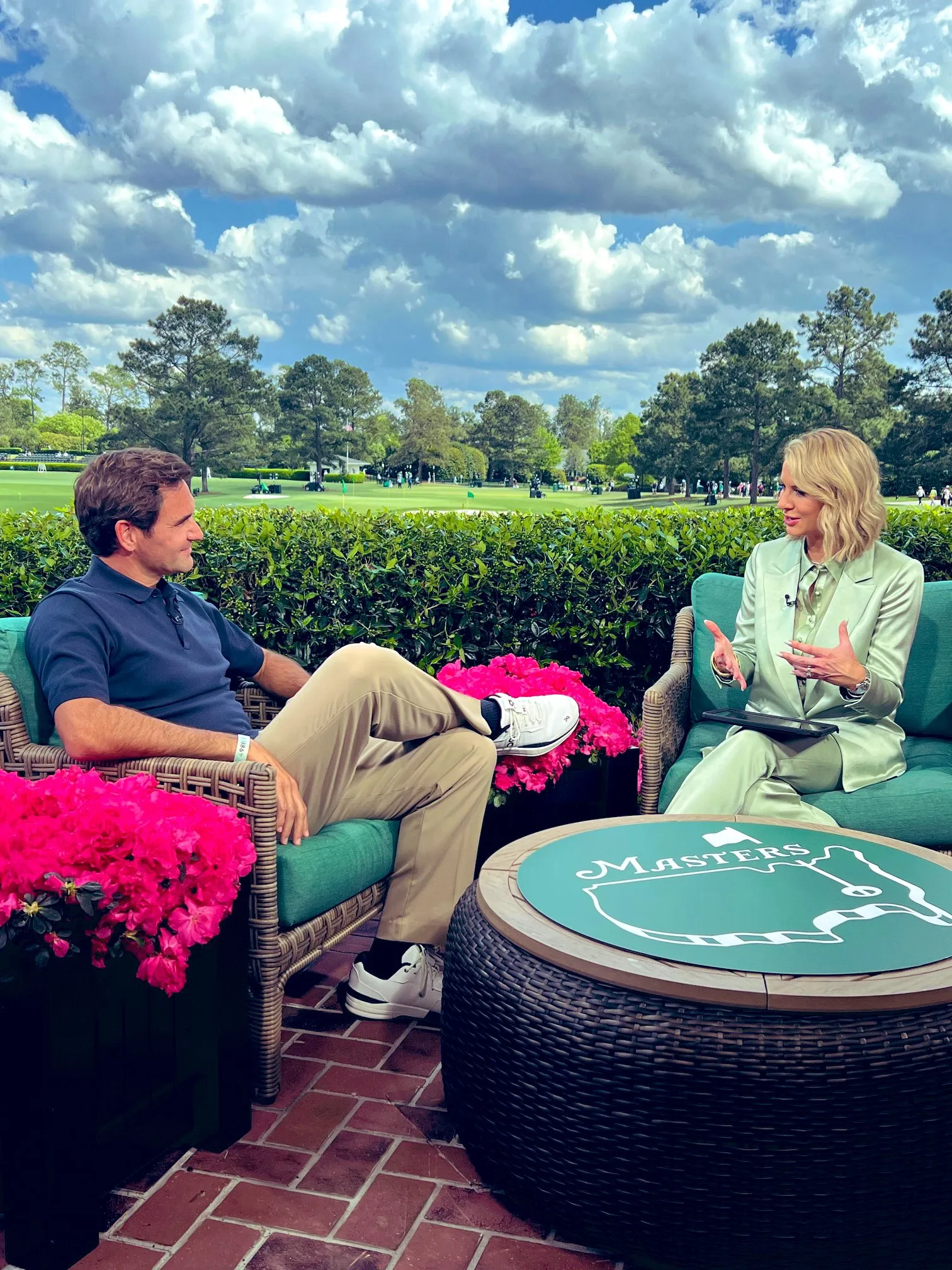
When Legends Collide: Roger Federer Drops Game-Changing Career Wisdom on Rory McIlroy
In the world of elite sports, legends are not only defined by their victories but also by their ability to transcend the boundaries of their disciplines. This truth was vividly illustrated when Roger Federer, one of tennis’s greatest champions, shared career-shaping insights with Rory McIlroy, the golfing superstar. Their conversation marked more than just an exchange between two global icons; it represented a cross-pollination of wisdom where the values of perseverance, adaptation, and mental mastery extended far beyond the court and the course.
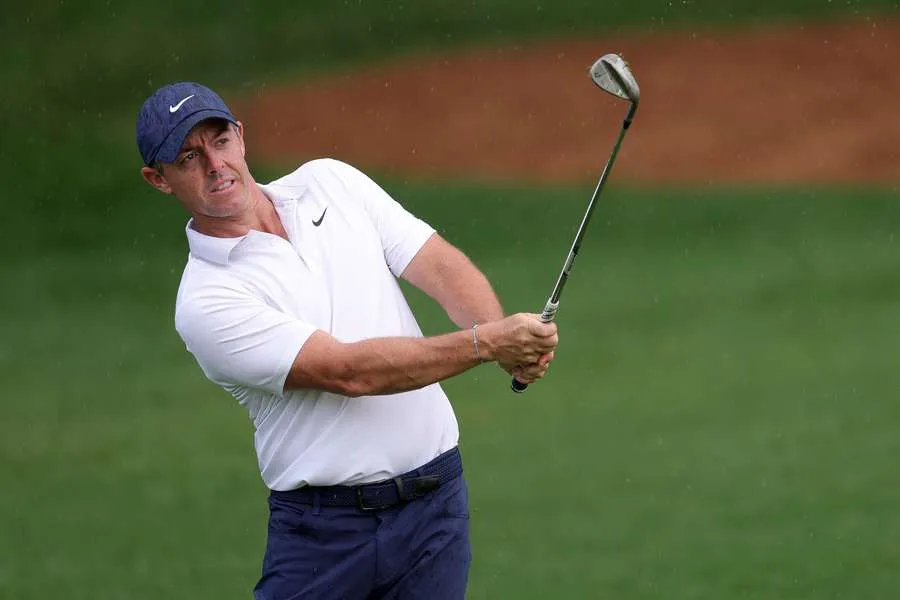
The dialogue between Federer and McIlroy became a profound lesson in how champions learn from one another regardless of the sport they dominate. While the Swiss maestro is known for redefining tennis with his grace, intelligence, and longevity, the Northern Irish golfer has similarly revolutionized modern golf with his powerful swing and unrelenting drive. Together, their discussion shed light on what it truly means to sustain excellence at the highest levels.
The Timeless Aura of Roger Federer
To appreciate the weight of Federer’s advice, one must first understand the aura that surrounds him. Roger Federer is more than a tennis player; he is the embodiment of artistry in motion. With 20 Grand Slam titles and countless records, he has crafted a career built on a rare combination of consistency, resilience, and humility. What sets Federer apart is not just the number of titles but the way he managed to sustain competitiveness for over two decades.
Federer’s longevity was not accidental. Behind his effortless strokes lay a philosophy anchored in adaptation and reinvention. As injuries and new rivals emerged, Federer adjusted his style, his training, and even his mental approach. This ability to evolve rather than cling stubbornly to past methods became one of the cornerstones of his legacy.
When Federer sat down with Rory McIlroy, he brought these very principles into the conversation. For McIlroy, a four-time major champion who has battled both triumphs and struggles on golf’s grandest stages, the opportunity to glean insights from Federer’s unparalleled journey was nothing short of transformative.
Rory McIlroy’s Parallel Journey
Just as Federer rose to prominence in tennis, Rory McIlroy carved out his place in golf as one of the most naturally gifted players of his generation. From the moment he burst onto the professional scene, McIlroy was heralded as golf’s next great hope. His majestic swing, fearless mentality, and youthful confidence propelled him to multiple major victories and a spot among the world’s best.
Yet McIlroy’s path, like Federer’s, has not been without turbulence. After his explosive early success, he faced stretches where expectations weighed heavily, critics questioned his focus, and victories became elusive. These challenges made McIlroy not just a champion, but a competitor who understood the mental and emotional battles that accompany sporting greatness.
It was within this context that Federer’s words struck a chord. The Swiss star, having faced similar ebbs and flows, offered McIlroy a perspective on how to view his career not as a linear trajectory but as a journey of resilience and renewal.
Wisdom Beyond the Court
One of the most striking elements of Federer’s advice was his emphasis on longevity over instant results. In a sporting culture obsessed with immediate success, Federer reminded McIlroy that the true test of a champion lies in the ability to sustain excellence. A single tournament may bring glory, but a career is defined by sustained effort, adaptability, and perspective.
Federer spoke about the importance of finding joy in the process, not merely in the outcome. Tennis, like golf, can be an unforgiving game. Matches and tournaments often hinge on the narrowest of margins. By focusing on the craft rather than obsessing over every result, Federer was able to maintain passion even in the face of setbacks.
For McIlroy, this resonated deeply. Golf is a sport where frustration can quickly consume a player. Missed putts, swirling winds, or a single poor decision can derail entire tournaments. Federer’s reminder that fulfillment comes from the process rather than perfection offered McIlroy a fresh lens through which to view his own journey.
Mental Resilience as the Greatest Weapon
Another crucial aspect of Federer’s wisdom was the role of mental resilience. Federer’s career is filled with examples of how he bounced back from crushing defeats. Matches against rivals like Rafael Nadal and Novak Djokovic pushed him to the brink, yet Federer always carried himself with composure, reminding the world that dignity in defeat was as powerful as grace in victory.
For McIlroy, who has faced heartbreaks in majors after leading positions, this insight was especially relevant. Federer emphasized the need to embrace failures as part of the growth process. Defeats are not endpoints but stepping stones toward refinement. The ability to absorb disappointment without allowing it to define one’s identity is, according to Federer, what separates champions from talented players.
This perspective was not about minimizing ambition but about building a mindset capable of enduring the inevitable ups and downs of elite competition. By reframing failure as an opportunity, McIlroy could channel setbacks into fuel for greater achievements.
The Role of Reinvention
What fascinated McIlroy most was Federer’s approach to reinvention. Federer openly acknowledged that his playing style in his 20s was vastly different from the one he employed in his 30s. He adapted to physical changes, the rise of new rivals, and the shifting dynamics of the sport.
In golf, McIlroy recognized a similar need. The modern game has evolved, with younger players bringing extraordinary athleticism and technology altering the competitive landscape. Federer’s advice underscored the necessity of evolving with the game rather than resisting change. Reinvention, far from being a sign of decline, was a hallmark of wisdom and growth.
For McIlroy, this meant reevaluating not just technical aspects of his swing but also his approach to scheduling, training, and mental preparation. Federer’s ability to extend his prime years by strategically adjusting his workload and embracing new strategies offered a blueprint that McIlroy could translate into golf.
The Power of Perspective
Perhaps the most human part of Federer’s guidance was his insistence on the importance of perspective. Federer revealed that balancing life outside of tennis was not a distraction but a vital part of his longevity. Family, friendships, and personal well-being were sources of stability that allowed him to compete with clarity and joy.
For McIlroy, who has often spoken about the pressures of being a public figure, this message carried profound weight. Federer’s reminder that athletes are not solely defined by their sport gave McIlroy a framework to protect his mental health while pursuing greatness. By nurturing passions and relationships beyond golf, McIlroy could maintain a healthier balance that would ultimately enhance his performance.
When Legends Collide
The meeting of Federer and McIlroy was more than a conversation; it was a symbolic collision of legacies. Both men, in their own domains, represent the highest ideals of sport: talent fused with dedication, artistry balanced with discipline, and ambition tempered with humility.
Federer’s game-changing wisdom was not prescriptive but universal. It spoke to the essence of what it means to be great—not just in winning trophies but in sustaining passion, resilience, and humanity across a career. For McIlroy, these insights provided both reassurance and challenge: reassurance that struggles are natural even for legends, and challenge to reinvent himself continually in pursuit of his best self.
A Legacy of Shared Greatness
As fans reflect on this extraordinary exchange, it becomes clear that the conversation was not just about tennis or golf but about the philosophy of excellence. The lessons Federer shared with McIlroy resonate with anyone striving for greatness, whether in sports, business, or personal life. Adaptation, resilience, perspective, and joy are not confined to a single profession; they are universal values that guide success in every arena.
McIlroy’s willingness to listen and learn, combined with Federer’s generosity in sharing his journey, highlighted the beauty of sportsmanship beyond competition. It was a reminder that even legends continue to evolve by seeking inspiration from others.
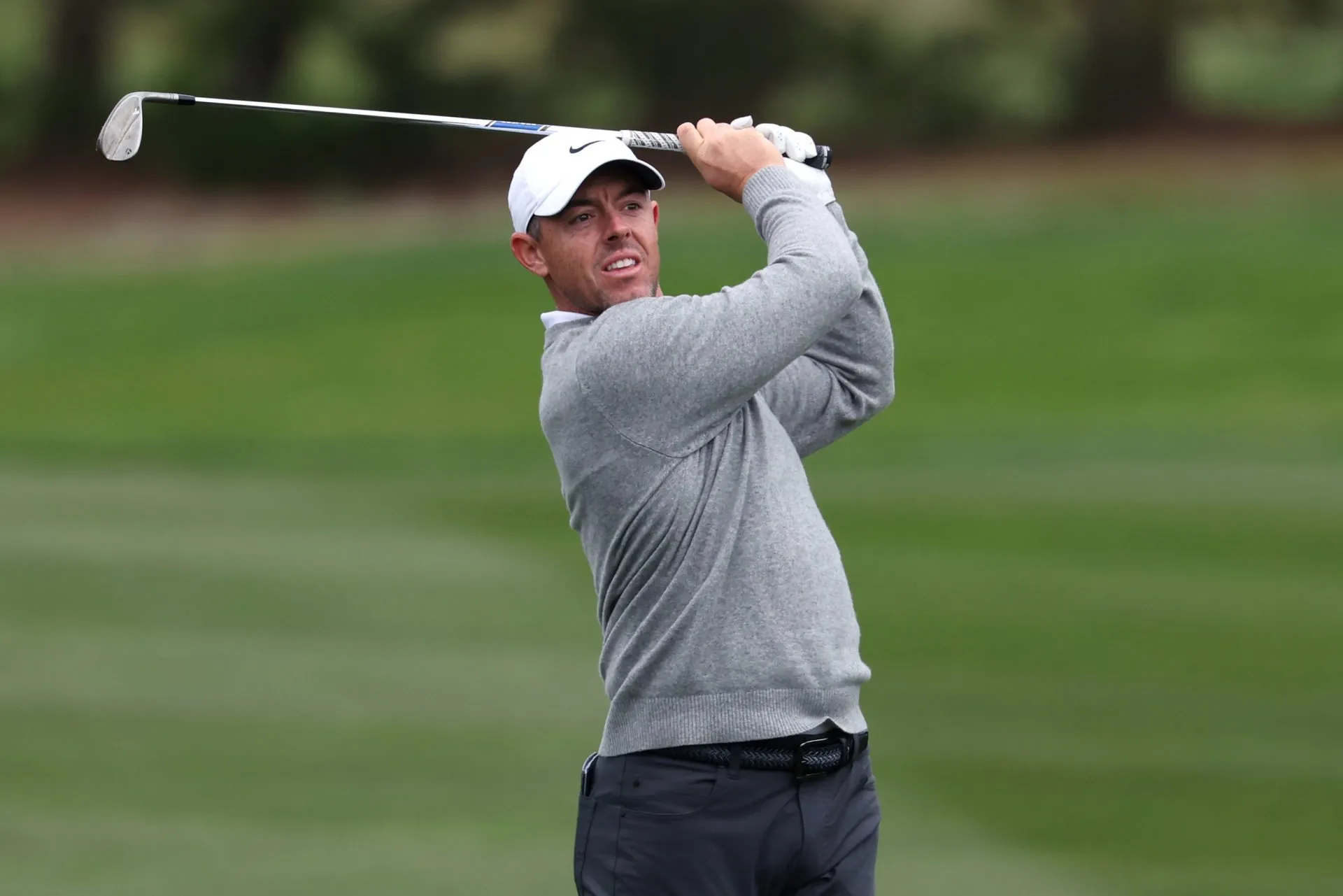
Conclusion
“When Legends Collide” is more than a headline—it is a testament to the timeless nature of wisdom. Roger Federer, having graced tennis with unparalleled elegance, passed on invaluable truths to Rory McIlroy, a golfer still shaping his story. Their dialogue demonstrated that greatness is not static; it is a living journey enriched by learning, adapting, and connecting with those who have walked similar paths.
In Federer’s words, McIlroy found not just advice but a vision for how to sustain his career with grace and resilience. And in listening to Federer, the world witnessed a moment where the essence of sport—its power to inspire, to teach, and to connect—was distilled into a conversation between two of its most luminous stars.








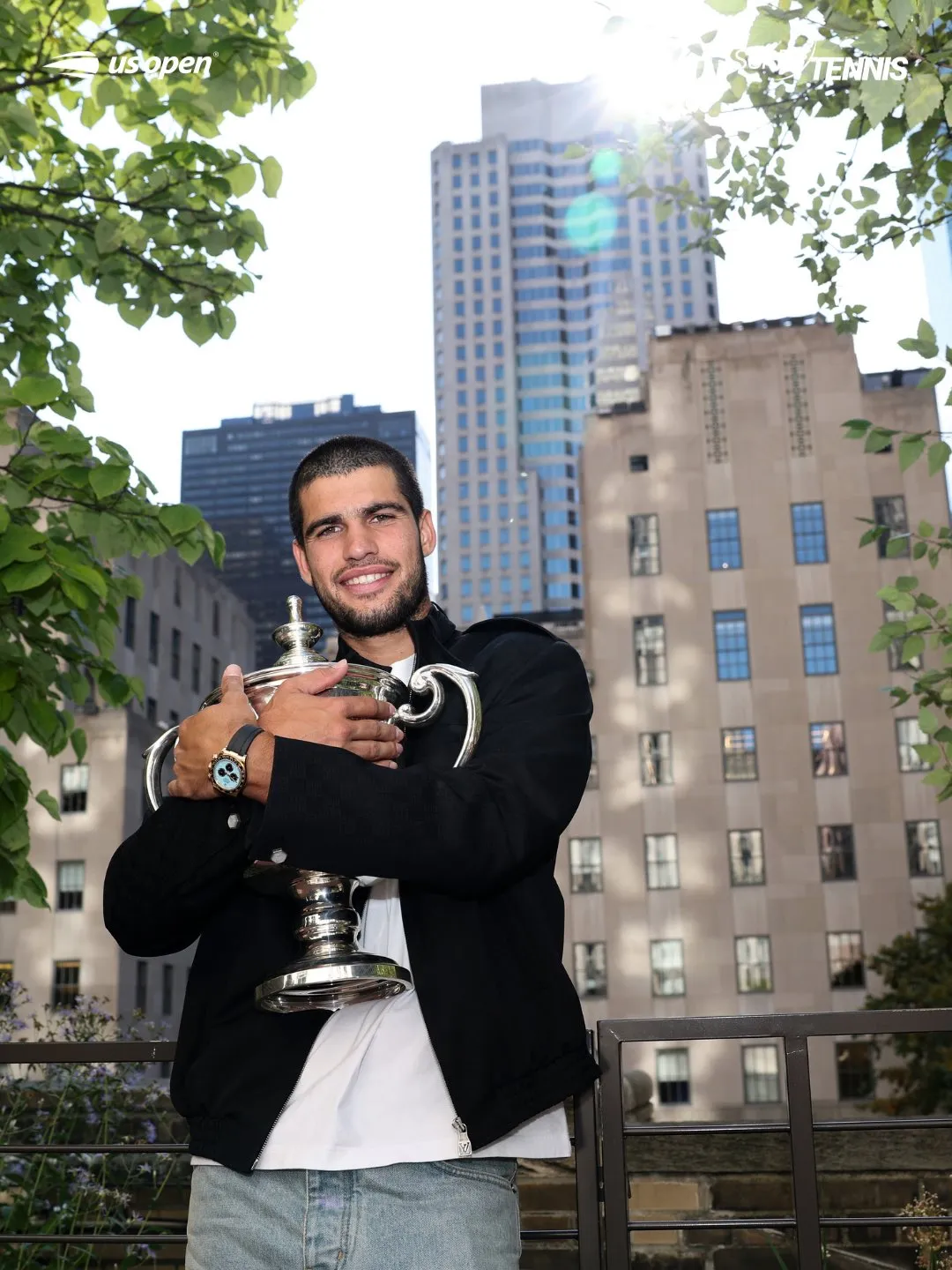
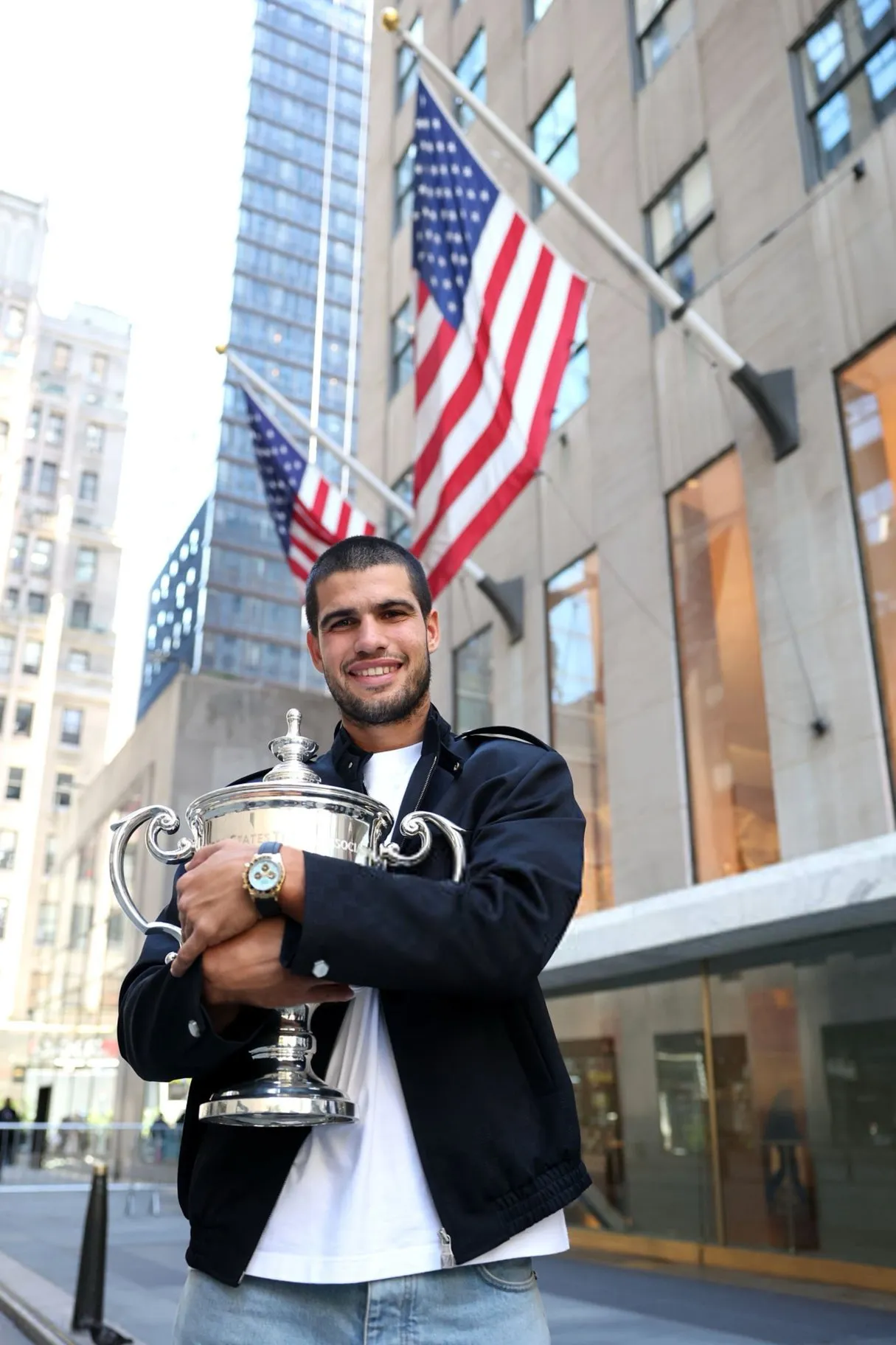
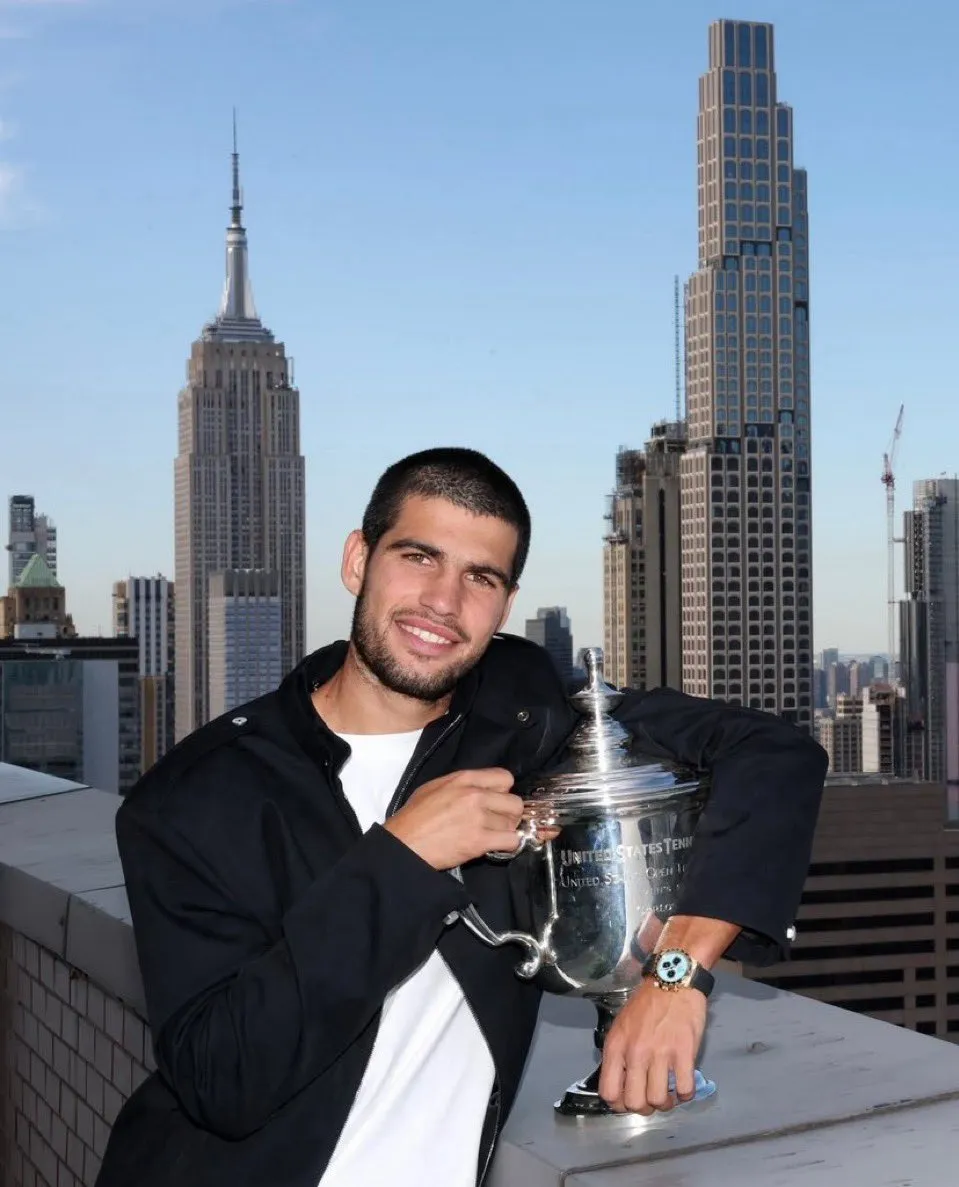








Post Comment